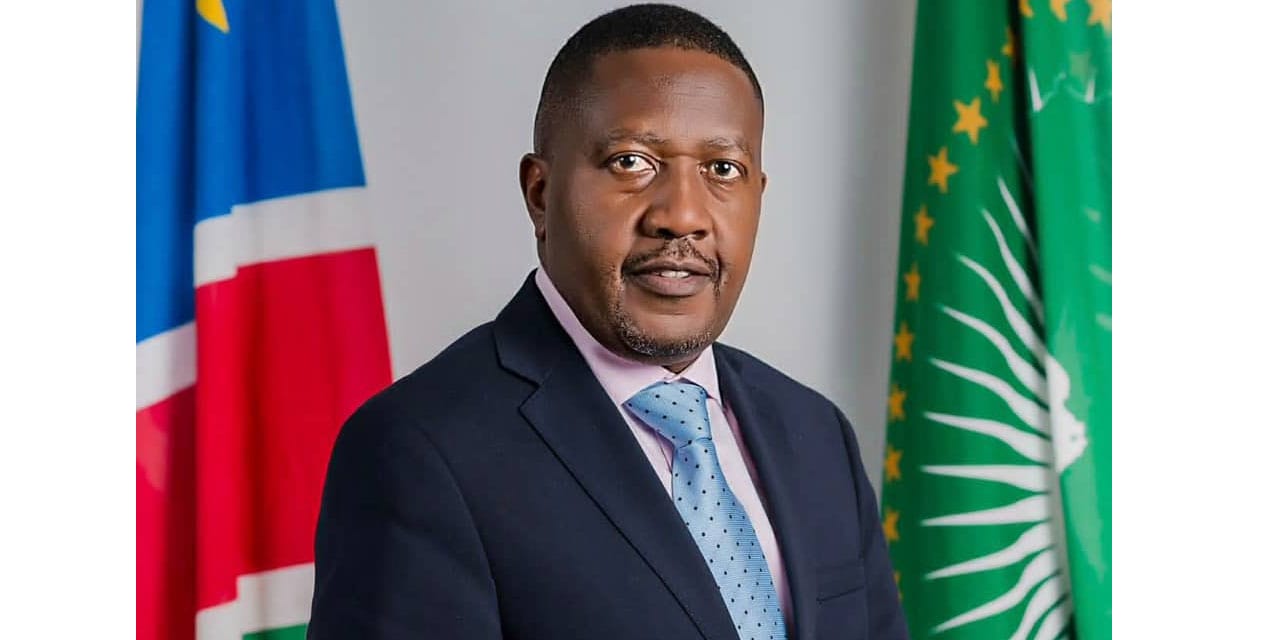Justicia Shipena
The Ministry of International Relations says it has not received any reports of Namibian nationals currently in Iran or struggling to leave the country.
The ministry’s executive director, Ambassador Penda Naanda, said no individuals or families have come forward to notify the ministry regarding people stuck in Iran.
“We are not aware of Namibians in Iran because nobody has come to us to tell us they are in Iran,” Naanda said in an interview with Windhoek Observer when asked about contingency plans in the event of stranded nationals.
This follows U.S. airstrikes on three Iranian nuclear sites, Fordow, Isfahan, and Natanz, ordered by President Donald Trump.
Trump described the attacks as having “obliterated” the facilities and warned of further strikes if Iran “does not make peace”.
Naanda consistently urges citizens to inform the ministry or the nearest Namibian embassy of their location when abroad.
“We always encourage our nationals travelling outside the country to either contact the nearest embassy or to inform this ministry about their travel. That way, we know where they are in case of an emergency, and we can engage their families accordingly,” he said.
Namibia has no embassy in Iran. The closest diplomatic representation is in Cairo, Egypt.
Asked what steps would be taken if Namibians were confirmed to be in Iran and were struggling to get out of the conflict area, Naanda said action could only be taken once their presence is verified.
“It becomes its own challenge, like the ones we had in Oman, Ukraine, Laos, and Myanmar. We can only do something when we know there are people and then determine how to handle it,” he said.
He said the ministry was able to evacuate Namibians from Sudan and Niger through cooperation with bilateral partners and the United Nations (UN).
“When issues broke out in Sudan, we had Namibians there. The same in Niger. Through our bilateral partners and with the UN, we were able to facilitate their evacuation,” Naanda said.
He stressed that coordination between the ministry, affected individuals, and their families is essential.
“It’s not a one-way thing. Nationals or their family members must come to us and inform us. For those in Sudan and Niger, some contacted the nearest missions, and others had family members who reached out to us,” he added.
While Naanda said there are no known Namibians in Iran, a year ago, Iran’s ambassador to Namibia, Dr Seyed Sharifi, revealed that his country had offered 25 scholarships to Namibians at the request of the Namibian government.
Six days ago, President Netumbo Nandi-Ndaitwah condemned the Israeli military strikes on Iran’s nuclear and civilian infrastructure, carried out on 13 June.
She urged the international community to take firm action to de-escalate tensions and restore dialogue among all stakeholders to prevent further conflict.
On Sunday, hundreds protested in The Hague against NATO and increased military spending ahead of a summit, as tensions between Iran, Israel, and the United States continue to escalate.
In response to the situation, the UN Security Council held an emergency meeting under the agenda item “Threats to International Peace and Security”.
UN secretary general António Guterres condemned the U.S. strikes and warned of a dangerous escalation in the Middle East.
“Two days ago, in this very chamber, I made a direct appeal: Give peace a chance. That call was not heeded,” he said.
“The people of the region cannot endure another cycle of destruction,” Guterres told the Council. And yet, we now risk descending into a rathole of retaliation after retaliation.”
He called for de-escalation and a return to negotiations on Iran’s nuclear programme.
On Friday, Guterres also warned that “we are not drifting toward crisis – we are racing toward it.”
The International Atomic Energy Agency (IAEA) director general Rafael Mariano Grossi said the global nuclear non-proliferation regime faces an unprecedented threat following the strikes.
“The nuclear non-proliferation regime that has underpinned international security for more than half a century is on the line,” Grossi told the Council.
He called for an immediate return to diplomacy and inspections.
Grossi confirmed IAEA inspectors are in Iran but have not gained access to the sites due to safety concerns.
Iran informed the IAEA that there were no signs of off-site radiation contamination.
Miroslav Jenča, UN assistant secretary Ggneral for Europe, Central Asia, and the Americas, warned that the U.S. military action presents a direct threat to global peace.
Iranian state media said the targeted facilities were evacuated and enriched uranium moved prior to the attacks.
Israeli authorities reported over 85 injuries and extensive damage in Tel Aviv and surrounding areas. Israel reported 25 deaths and 1,300 injuries since the fighting began ten days ago.
Meanwhile, Iran’s health ministry said 430 people have died, and more than 3,500 were injured by Israeli strikes as of 21 June.




